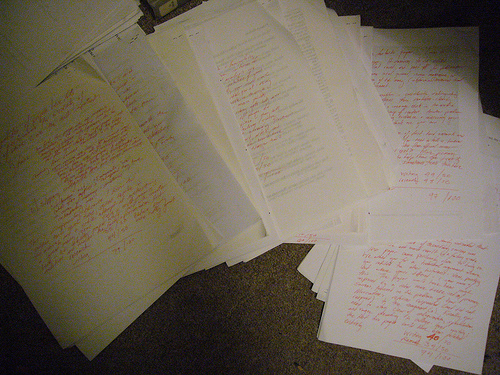
Source: joguldi / Flickr / All Rights Reserved
Kenneth Miller, a biology professor at Brown University, tells a story of catching two students plagiarizing. It seemed quite clear that the two students had submitted the same papers, but the two argued it was merely by chance and that the fact that they were roommates explained why the papers seemed similar. After all, the paragraphs were moved around, each used slightly different words, and at a quick glance the two papers were superficially different. Yet Miller confidently maintained that the students had plagiarized. What was his proof? The mistakes. The students had misspelled the same six words in the same six ways. Clearly the two papers were related
What does this story have to do with BioLogos? Just as Miller could identify the link between the two papers by looking at the mistakes, so too we find evidence for common ancestry in the mistakes of our DNA. Our human genome contains a “pseudo-gene” — a gene with a mistake — among our five working copies of a gene that produces beta-globin. This same exact mistake can be found in the genomes of both chimpanzees and gorillas. It seems likely, then, that we share a common ancestor with the chimpanzee and the gorilla.
To read more evidence for evolution from Miller, be sure to read “The Mistakes That Argue Evolution” by Kenneth Chang, available on the New York Times‘ Web site.

